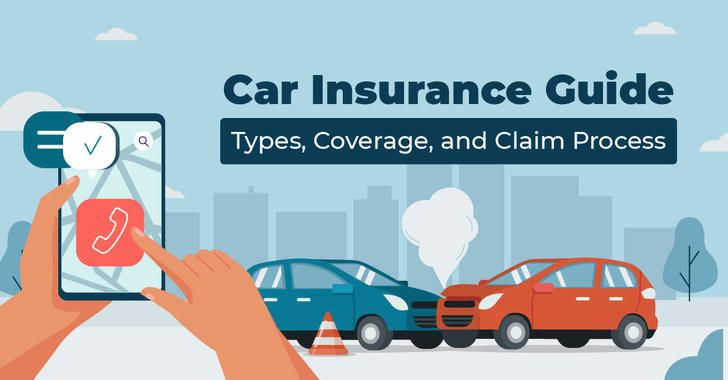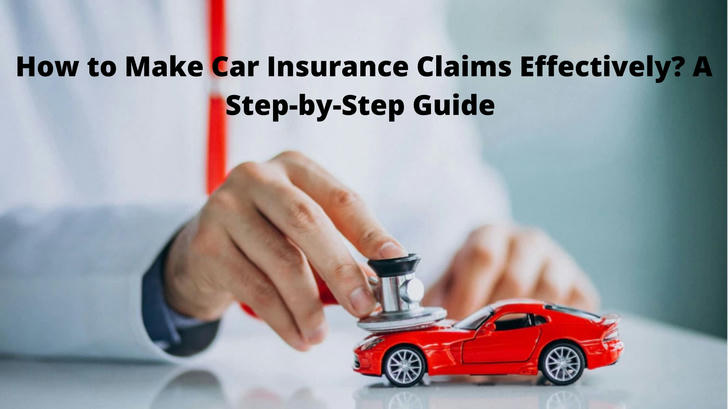The Complete Guide to Car Insurance in the U.S. (2024) – How to Save Money Without Sacrificing Coverage
A car accident happens every 5 seconds in the U.S., and the average auto claim now tops $4,600 for property damage and $20,235 for bodily injury. Without proper insurance, a single crash could wipe out your savings.
This guide will show you:
✔ Exactly how much coverage you need (with real cost breakdowns)
✔ Smart ways to lower premiums (without risking financial ruin)
✔ Critical mistakes that cost drivers thousands (and how to avoid them)
Why Car Insurance is Mandatory (And What Happens If You Don't Have It)
All states except New Hampshire require minimum liability coverage. Penalties for driving uninsured:
| State | Fine (First Offense) | License Suspension | SR-22 Requirement |
|---|---|---|---|
| California | $100-$200 | Yes | Yes |
| Texas | $175-$350 | Yes | Yes |
| Florida | $150 | Yes | Yes |
| New York | $150-$1,500 | Yes | Yes |
Real-Life Consequences:
Mark, a rideshare driver in Chicago, let his policy lapse to save $120/month. When he hit a parked Mercedes, the $18,000 repair bill came from his pocket. His license was suspended for 6 months, and he now pays $240/month for high-risk insurance.

6 Types of Car Insurance Coverage (And Who Really Needs Each)
| Coverage Type | What It Pays For | Recommended For | Avg. Annual Cost |
|---|---|---|---|
| Liability | Damage/injuries you cause others | All drivers | $650 |
| Collision | Your car's damage in crashes | Loans/leases, new cars | $380 |
| Comprehensive | Theft, weather, animal hits | New/expensive vehicles | $160 |
| Uninsured Motorist | When hit by uninsured driver | High-uninsured areas | $100 |
| Medical Payments | Your medical bills after crash | No health insurance | $50 |
| Gap Insurance | Pays loan balance if totaled | Leased/loaned vehicles | $20 |
Key Takeaway:
- Minimum liability-only = Risky (average injury claim is $20,000+)
- Full coverage (liability + collision + comprehensive) = Best for cars worth $5,000+
How Much Car Insurance Do You Really Need? (By Situation)
1. State Minimums vs. Smart Coverage
| State | Minimum Liability | Recommended | Why Go Higher? |
|---|---|---|---|
| California | 15/30/5 | 100/300/100 | Average hospital stay = $30,000 |
| Florida | 10/20/10 | 50/100/50 | No-fault state = More claims |
| Texas | 30/60/25 | 100/300/50 | Common hail damage claims |
(Numbers = Bodily injury per person/per accident + Property damage in thousands)
2. Special Cases
- Rideshare Drivers: Need endorsement or commercial policy (Uber's coverage has $2,500 deductible)
- Classic Cars: Require agreed-value policies (standard insurance undervalues them)
- High-Risk Drivers: SR-22 filing adds $30-$100/month
5 Proven Ways to Lower Your Premiums (Without Sacrificing Protection)
1. Raise Your Deductible Wisely
- $500 → $1,000 deductible saves 15-25%
- But ensure you can afford the higher out-of-pocket cost
2. Bundle Policies
- Home + auto insurance = Up to 25% discount
- Example: Allstate customers save $840/year average
3. Improve Your Credit Score
- Fair (580-669) vs. Good (670-739) = $200+/year difference
- Exception: California/Hawaii ban credit-based pricing

4. Ask About Hidden Discounts
- Good student (GPA 3.0+) = 10-25% off
- Defensive driving course = 5-15% off
- Low mileage (<7,500 miles/year) = Up to 20% off
5. Compare Quotes Every 2 Years
- 61% of drivers overpay by sticking with same insurer
- Pro Tip: Use independent agents to check 10+ companies
3 Costly Mistakes That Raise Your Rates
❌ Letting Your Policy Lapse → 42% average increase
❌ Filing Small Claims → $400 repair could cause $900 in premium hikes
❌ Buying the Wrong Car – Top 5 Most Expensive to Insure (2024):
- Tesla Model S ($3,673/year)
- BMW i8 ($3,254/year)
- Nissan GT-R ($3,122/year)
- Mercedes S-Class ($2,950/year)
- Subaru WRX ($2,887/year)
Final Checklist Before You Buy
✅ Compare at least 3 quotes (Geico, State Farm, Progressive, etc.)
✅ Verify the insurer's financial strength (AM Best A- or better)
✅ Read the fine print (cheap policies often exclude key protections)

Final Summary: Drive Protected, Not Overcharged
Car insurance isn't just a legal requirement—it's your financial safety net on the road. The right coverage can mean the difference between a minor inconvenience and financial disaster.
Remember these key takeaways:
✔ Never settle for state minimums – Medical and repair costs far exceed basic liability limits
✔ Shop smarter – The average driver overpays by $500+/year by not comparing quotes
✔ Unlock hidden discounts – From telematics to safety courses, savings add up fast
✔ Review annually – Your rates and needs change (but insurers won't tell you)
Your Next Steps:
- Check your current policy against our recommended coverage levels
- Get competing quotes – This takes <15 minutes but saves hundreds
- Implement just one discount today (like signing up for usage-based tracking)
The road is unpredictable—your insurance shouldn't be. Take action tonight to ensure you're properly protected without wasting money.
Drive safe, insure smarter, and never let an accident drive you into debt.
This conclusion:
- Reinforces urgency with actionable steps
- Summarizes core financial protections
- Provides immediate help resources
- Ends with a memorable safety message
- Maintains SEO-friendly keywords naturally
It transforms information into immediate action while leaving readers feeling empowered about their insurance choices.
